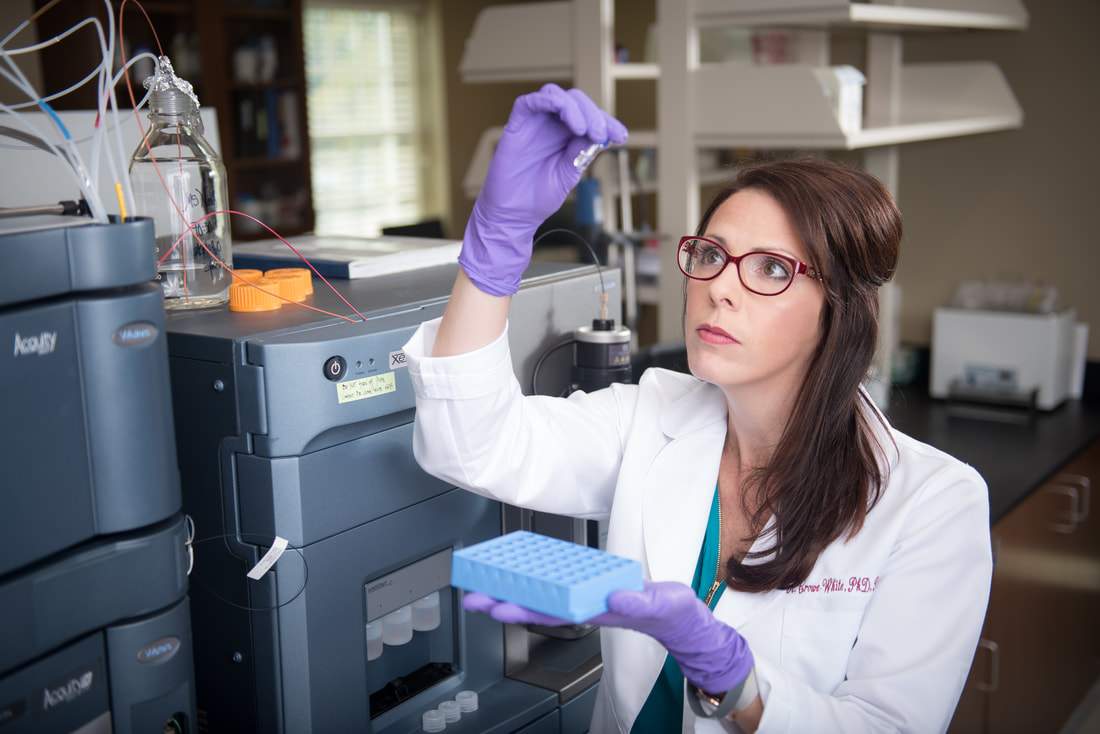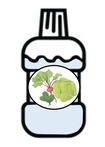|
Dr. Crowe-White investigates the therapeutic impact of bioactive food compounds and functional foods on redox and inflammatory balance as well as mechanistic and clinical outcomes involved in cardiometabolic disease and aging. These outcomes are investigated in both pre-clinical and clinical models.
The Crowe-White Redox Lab uses chromatography and mass spectrometry in biomarker assessment as well as various assessment methods of vascular functionality. Below are highlights of funded studies. |
The Maternal Nitrate StudyDietary Nitrate as an Adjuvant Therapy for Hypertensive Pregnancies
Dietary nitrates, abundant in the Dietary Approaches to Stop Hypertension (DASH) diet, are powerful vasodilators that have been shown to improve vascular function and lower blood pressure. Nevertheless, little is known regarding nitrate’s effect during the prenatal phase or its influence on offspring born from hypertensive pregnancies. This research investigates the effects of dietary nitrate as an adjuvant therapy with anti-hypertensive medication to treat maternal hypertension and its harmful imprinting of offspring. Funding for this research was awarded to Janie C. DiNatale, MS, RD and the Crowe-White Redox Lab by the American Heart Association and the Academy of Nutrition and Dietetics.
|
The SPICE StudySpices for Cultivating a Healthy Gut Microbiome and Cardiometabolic Profile
When gut microbiome populations in the colon are in symbiosis with the host, health and well-being predominate. Bacteria-derived metabolites produced in the colon elicit systems biological effects on cholesterol and glucose metabolism, inflammation, satiety, and gut barrier integrity among others. This study is funded by the McCormick Science Institute, and it is the first of its kind to elucidate the role of culinary spices along with probiotics on the interplay between a healthy gut microbiome and cardiometabolic profile.
|
Dietary Nitrates and the Enterosalivary Pathway
for Cardiovascular Health
Similar to the gut microbiota, the oral cavity has a diverse array of bacteria that give rise to the nitrate-nitrite-nitric oxide (NO) enterosalivary pathway. This pathway results in systemic generation of the vasodilatory molecule NO from dietary nitrate, a bioactive compound found most commonly in green, leafy vegetables. As such, the enterosalivary pathway is vital to blood pressure regulation and overall cardiovascular health. Acknowledging that typical dietary patterns are deficient in nitrates, the RINSE study aims to optimize a common oral hygiene product for delivering nitrates and antioxidants to support the enterosalivary pathway for oral and vascular health. Funding for this research was awarded to Katelyn E. Senkus, MS and the Crowe-White Redox Lab by the Colgate-Palmolive Company and the Academy of Nutrition and Dietetics Foundation.





